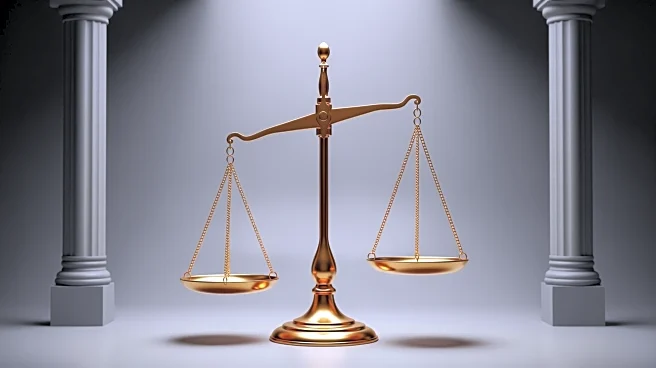What's Happening?
Recent data and earnings reports indicate a 'K-shaped' economic recovery in the United States, where affluent consumers are thriving while lower- and middle-income individuals face financial challenges.
This economic pattern is characterized by a divergence in financial well-being, with wealthier individuals benefiting from a booming stock market and appreciating real estate values. In contrast, many others are struggling due to a precarious job market, high interest rates, and inflation. Key sectors reflecting this trend include the automotive industry, where the average cost of a new vehicle has surpassed $50,000, and the airline industry, where premium seat sales are expected to outpace coach seats. Additionally, companies like Apple and Coca-Cola are experiencing strong sales in premium products, further illustrating the spending power of wealthier consumers.
Why It's Important?
The emergence of a K-shaped economy underscores significant socio-economic disparities in the U.S. While affluent consumers continue to spend freely, the financial strain on lower- and middle-income groups could lead to broader societal and political challenges. This economic divide may exacerbate existing inequalities, potentially leading to increased social unrest and political instability. The situation also highlights the need for targeted economic policies to address these disparities and support those most affected by economic downturns. The ongoing trend suggests that without intervention, the gap between the wealthy and the rest of the population may continue to widen, impacting consumer behavior and overall economic stability.
What's Next?
As the K-shaped recovery persists, policymakers and economic stakeholders may need to consider measures to mitigate its effects. This could involve implementing policies aimed at supporting job creation, stabilizing interest rates, and addressing inflation to alleviate the financial burden on lower- and middle-income individuals. Additionally, businesses may need to adapt their strategies to cater to a more polarized consumer base, focusing on both high-end and budget-friendly products. The trajectory of this economic pattern will likely influence future political discourse and policy decisions, as leaders seek to balance growth with equity.
Beyond the Headlines
The K-shaped recovery raises ethical and cultural questions about the sustainability of current economic models. It challenges the notion of equal opportunity and highlights the potential for long-term shifts in consumer behavior and societal values. As disparities grow, there may be increased calls for systemic changes to ensure a more equitable distribution of wealth and resources. This could lead to a reevaluation of economic priorities and a push for more inclusive growth strategies.








